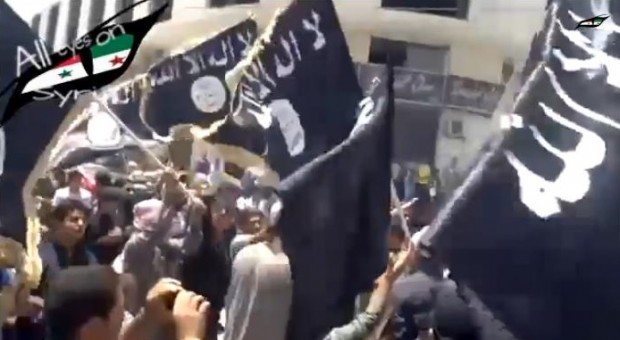Following the restoration of his political rights, veteran Islamist politician and former Prime Minister Necmettin Erbakan, 83, returned to active politics, raising questions about the leadership of the Islamist Felicity Party (SP). Erbakan, the legendary leader of the National Outlook Movement (NOM) advocated a political Islamist platform in Turkish politics, and formed a succession of political parties since the 1970’s -training activists who became influential figures within Turkish political life. He skillfully mobilized the Turkish electorate behind his Welfare Party (RP) in the 1990’s and succeeded to rule the country in a coalition government between 1996 and 1997. His policies while in power irked Turkey’s powerful generals who perceived the RP as a direct threat to secularism and staged a campaign to force Erbakan out of power, known as the “February 28 process.” Erbakan was forced out of office, and subsequently the Constitutional Court closed down the RP in 1998, suspending political rights of Erbakan and other RP officials. The crackdown on Islamic social networks during the “February 28 process” led to a crisis within the Islamist movement, whereby the new generation questioned the platform and strategies of the NOM instilled by Erbakan. The split between the pro-Erbakan old-guard and the reformist wing became visible when the Constitutional Court shut down the WP’s successor Virtue Party (FP) on similar grounds in 2002. The two groups separated, with the reformists organizing themselves around the leadership of Recep Tayyip Erdogan, whose Justice and Development Party (AKP) came to power following a landslide election victory in 2002 and continues to rule Turkey. In contrast, the FP’s traditionalist offshoot, the SP, was defeated.
Although he took over the SP leadership after his five-year ban came to an end in 2003, Erbakan faced political restrictions in another RP-related case. He was found guilty of forgery in the so-called “lost trillion case’ concerning the loss of more than one trillion Turkish Liras in Treasury grants to the RP. In addition to his political ban, he was sentenced to two years and four months, which he began serving under house arrest in May 2008. Citing Erbakan’s ailing health, in August 2008 President Abdullah Gul pardoned him, paving the way for the removal of his political restrictions (Today’s Zaman, April 6).
Erbakan constantly expressed his opinions on political developments through his public appearances in the SP’s election rallies and other platforms. He acted as a vocal opponent of the governing AKP, criticizing it for following pro-Western policies and betraying the NOM spirit. After the restoration of his political rights in April, Erbakan’s press briefing in the SP headquarters was interpreted as marking his return to “active politics.” Despite his advanced age, he set himself an ambitious timescale for putting the SP on the political map, voicing the same anti-Western and confrontational discourse he had been advocating for decades (ANKA, April 10). Following his press briefing, Erbakan visited Iran, where he received a warm welcome from Iranian officials including President Mahmoud Ahmedinejad. Erbakan and Iranian leaders vowed to continue their struggle against “Western imperialism and Zionism” and pursue the establishment of a pan-Islamic union (www.saadet.org.tr, April 19; Hurriyet, April 20).
Erbakan’s return to politics has raised questions about the future leadership of the SP. Though his political socialization took place within the NOM tradition, the current party leader Numan Kurtulmus, a professor of economics, in many ways distinguished himself from traditionalists. Distancing himself from the doctrinaire outlook of the NOM cadres, Kurtulmus is known as a person who has embraced broader segments of society (www.cafesiyaset.com, December 16, 2008). He declined invitations from the governing AKP to join their ranks, and instead continued his political career within the SP, and eventually took on the challenging task of revitalizing the NOM tradition in Turkish politics. He overcame opposition from traditionalists and was elected as the new SP leader in October 2008 -succeeding Erbakan. He maintained his allegiance to Erbakan’s ideals but avoided being viewed as his caretaker (www.timeturk.com, October 22, 2008).
Now that Erbakan has returned to the party, Kurtulmus’ position appears vulnerable. Kurtulmus was not present at the Erbakan press briefing, which triggered speculation that there might be an underlying leadership struggle within the party (www.habervitrini.com, April 11). Fuelling these rumors, Erbakan avoided telling reporters what his future role will be within the party. Kurtulmus ruled out such a contest, arguing that “we do not have a leadership problem. Mr. Erbakan does not harbor such goals… he has valuable views and we will continue to benefit from them” (Anadolu Ajansi, April 12).
Alternatively, Erbakan might portray himself as an “intellectual guide” for the NOM, enabling him to exert influence over the SP. Though he may not assume the party chairmanship directly, given his personality, he is unlikely to disengage entirely from the SP and its policy making, not least for the purpose of consolidating his son’s position in the party. Since many analysts attributed the SP’s success in last month’s local elections to its new leader Kurtulmus, who was able to imbue a sense of dynamism through his moderate political discourse, the return of the old-guard Erbakan might damage the party’s future performance within Turkish politics.


